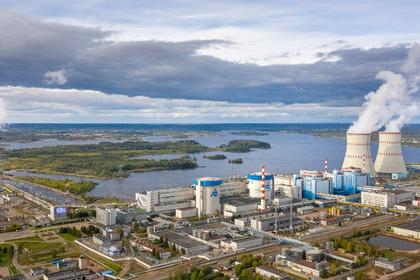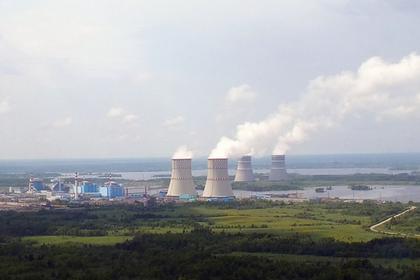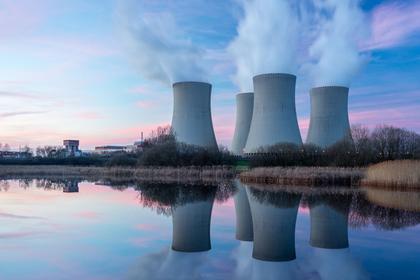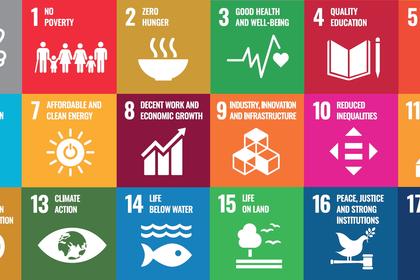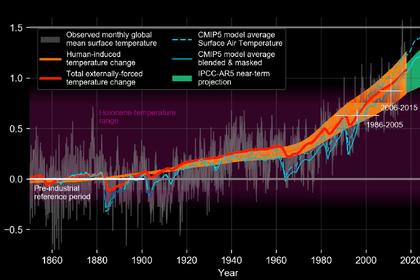
RAPID NUCLEAR DECARBONISATION
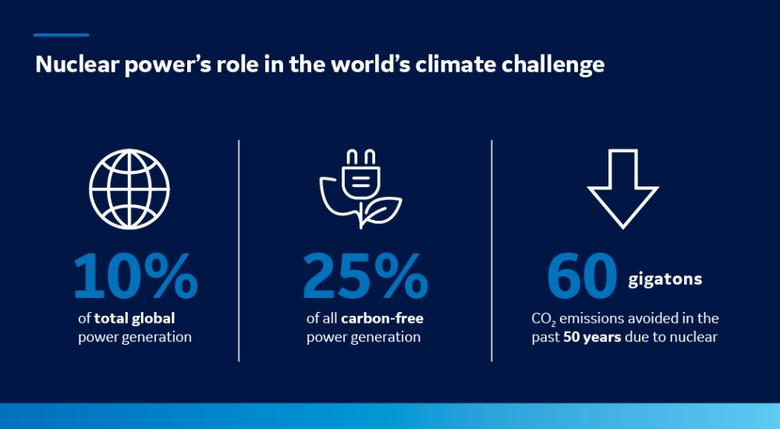
WNN - 30 November 2021 - Nuclear energy offers a "golden opportunity" to create a cleaner and more equitable world, World Nuclear Association Director General Sama Bilbao y León said today at the World Nuclear Exhibition in Paris. However, she noted there are three major challenges hindering the nuclear industry in making its full potential contribution towards sustainable development and combatting climate change: financing, perception and regulation.
Bilbao y León said about 440 nuclear power reactors are "quietly operating in the background - out of sight and out of mind - providing people across the world with always-on, inexpensive, non-polluting and reliable energy."
She added that, so far this year, over 5 GW of new nuclear generating capacity has been brought online across the world, in China, India, Pakistan and the UAE. Meanwhile, construction has started on a further 6 GW of capacity. "The nuclear sector is gathering quite a bit of momentum," she said.
Extending the life of the current fleet of reactors as long as feasible is vitally important, she said. "We have seen positive movement on this front, particularly in the USA, where nearly 20 reactors have been saved from needless premature closure in the last five years - closures that would not only increase greenhouse gas emissions, but also undermine energy independence and result in lethal air pollution ... and leave behind many communities whose economy depends on these units."
Meeting the 1.5°C temperature rise target in a cost-effective and socially equitable manner will require the rapid deployment of much more nuclear energy, Bilbao y León said. "Nuclear power enables rapid decarbonisation on a massive scale, and it has the track record to prove it."
"Nuclear technologies will play a major role in making possible a net-zero world of abundant energy for everyone, generating electricity for large grids and small communities alike, providing district heating and cooling, supplying process heat to industry, producing hydrogen, and so much more," she said. "Because nuclear energy is the only energy source that can produce low-carbon electricity and low-carbon heat, it can be a game changer for the deep decarbonisation of the entire global economy."
For nuclear energy to play a significant role to meet the decarbonisation and sustainable development needs of the world, more than 1200 GWe of nuclear generation must be installed by 2050. This means the construction of 30 new reactors annually. "We can do it," Bilbao y León said. "We have done this before, but we have not yet reached that level today."
She said the nuclear industry urgently needs to lay down the human, physical, commercial and institutional infrastructures that will enable it to "truly scale up fast to meet the urgent and massive decarbonisation needs.
"Going further yet, we need to accelerate the development and deployment of small modular reactor (SMRs) and advanced nuclear technologies. SMRs and advanced nuclear projects will play an important role in further diversifying the nuclear sector, and bringing nuclear to new markets and applications."
Challenges to overcome
However, Bilbao y León said the nuclear industry must "build on the momentum of today to remove the remaining barriers that nuclear energy faces." These, she said, are financing, perception and regulation.
With regards to financing, she said it is essential the industry ensure nuclear power projects are included in the various ESG (environment, social and governance) finance frameworks and sustainable finance taxonomies being developed across the world.
"The global nuclear sector needs to continue to work towards ensuring that all these green financing classifications and frameworks - which will be used to build a more sustainable tomorrow - are based on scientific and technology-neutral methodologies."
She said it is also imperative to develop financial, contractual and market approaches that help align the characteristics of a nuclear project with the needs and priorities of private investors. "Indeed, nuclear power should be a natural choice for any investor with a long-term horizon, such as pension funds."
There has been growing recognition amongst policy makers and the public of the low-carbon attributes and high reliability of nuclear power, Bilbao y León noted. "But let's be clear on this: recognition is not enough. We don't want nuclear energy to be the option of last resort ... we want it to be the first choice.
"Beyond achieving decarbonisation in high-income countries, there are so many powerful stories that the nuclear community should tell, stories that will be incredibly powerful in changing public perception towards nuclear technologies. Such as painting the picture of a world in which the economies of today's developing countries thrive thanks to a reliable supply of abundant, clean and cheap electricity."
On the issue of regulation, she said the industry urgently needs to address the licensing of reactor designs across national borders. "There can be no doubt that the nuclear industry is being held back by national approaches to licensing and regulation, turning what should be an efficient series of nth-of-a-kind projects with significant learning curves, into a never-ending series of first-of-a-kind ones, with its many - and well-known - drawbacks," Bilbao y León said. "This creates unnecessary uncertainty and risk to the deployment of new reactors.
"The world has changed, and we must change with it ... Now more than ever it is essential for industry, regulators and governments to work together to align national regulatory approaches and streamline the international licensing process."
She said the future for nuclear power has "not looked brighter in many years, but it is up to us to capitalise on the current momentum and make the absolute most of this opportunity. Game on for nuclear!"
-----
Earlier:
